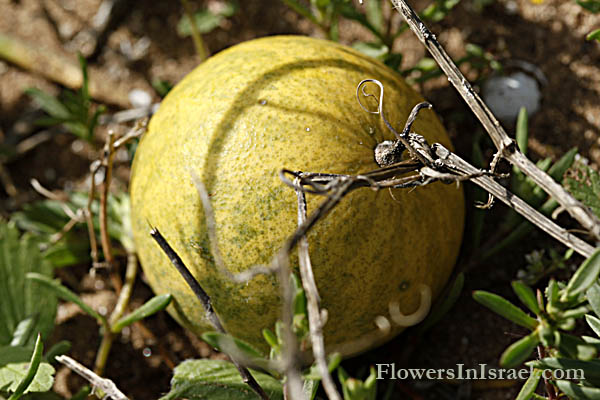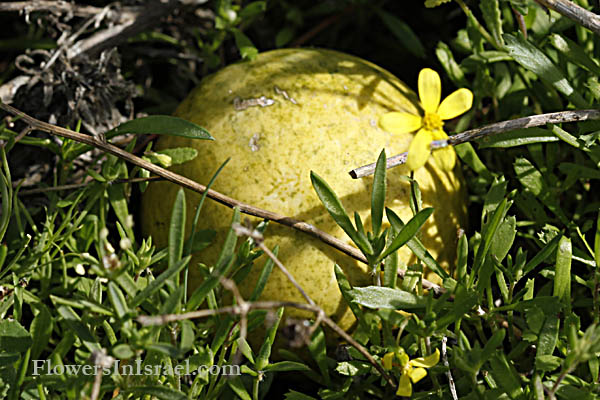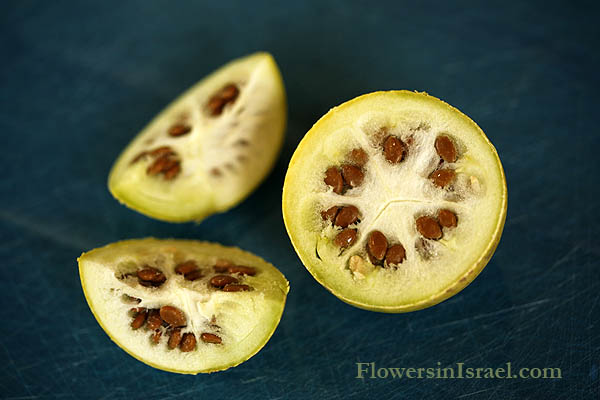Bitter Gourd, Bitter-apple, Colocynth, Vine-of-Sodom, Wild gourd,
Hebrew: אבטיח הפקועה, Arabic: حنظل , علقم
| Scientific name: | Citrullus colocynthis (L.) Schrad. | |
| Common name: | Bitter Gourd, Bitter-apple, Colocynth, Vine-of-Sodom, Wild gourd, | |
| Hebrew name: | pakkuoth, אבטיח הפקועה | |
| Arabic name: | حنظل , علقم | |
| Plant Family: | Cucurbitaceae, דלועיים |

|
| Life form: | Hemicryptophyte | |
| Stems: | slender, tough, angular, scabrid ( slightly rough to the touch) vine-like stems; usually lying on the ground; climbing over shrubs and herbs by means of axiliary branching tendrils | |
| Leaves: | Alternate, entire, deeply divided, lobesnarrow, thick, glabrous or somewhat hairy | |
| Flowers: | Monoecious, both males and females solitary, corolla pale yellow | |
| Fruits / pods: | a globose or oblong fleshy indehiscent berry, 5-7.5cm in diameter and variegated with green and white; seeds pale brown | |
| Flowering Period: | May, June, July, August | |
| Habitat: | Desert, thermophilous (heat-loving) | |
| Distribution: | Mediterranean Woodlands and Shrublands, Semi-steppe shrublands, Shrub-steppes, Deserts and extreme deserts | |
| Chorotype: | Saharo-Arabian | |
| Summer shedding: | Perennating |

Derivation of the botanical name: Citrullus, the Latin diminutive of Citrus, from the appearance of the fruit. Watermelon is Citrullus vulgaris. colocynthis (Latin), Greek kolokunthis, "round gourd."
The wild gourds in the Bible were most likely the fruit of the Citrullus colocynthis. It is a groundhugging vine which grows abundantly in dry conditions. Round, yellow fruit with green spots and poisonous pulp, which fits the Elisha story (2 Kings 4:39). Bible resources:

|